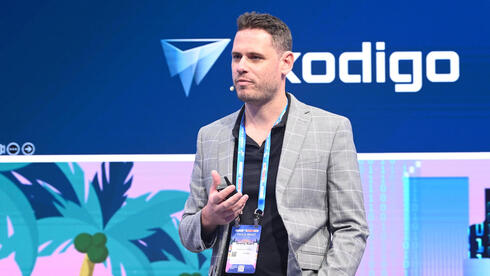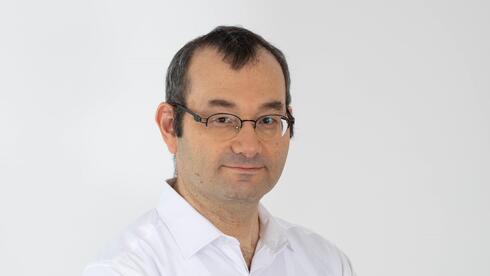
Miami 2024
"We provide highly detailed maps that identify risks for infrastructure developers. Essentially, we sell a risk map"
Jeremy Suard, CEO of Exodigo, was speaking at Calcalist and Bank Leumi's Miami conference.
Jeremy Suard
(Tomeriko)
Jeremy Suard, co-founder and CEO of Exodigo, understands that the key to successful infrastructure projects lies in significantly reducing uncertainty. Drawing on his military experience developing systems to locate tunnels, Suard has a deep understanding of how to tackle the challenges of identifying underground infrastructure. Speaking at the Calcalist and Bank Leumi conference in Miami, he remarked: "We are working on many large-scale projects in Israel, the United States, and Great Britain. There are substantial budgets available for infrastructure, and funding is accessible through municipalities and governments."
Suard highlighted the opportunities created by the Biden administration's $1.2 trillion infrastructure law, stating: "Only half of that funding has been allocated in the first four months. This delay is primarily due to projects not being completed on time or within budget. The main culprits are politics and bureaucracy."
He elaborated on the political and bureaucratic hurdles faced by infrastructure projects: "There's always resistance—whether it's a building that people don't want to move or a station they oppose being built. These delays stem from navigating the complex web of approvals and objections."
Suard emphasized the importance of identifying potential issues early on to ensure safe and efficient infrastructure development: "Anyone working in infrastructure knows that uncovering what lies beneath the surface is critical. This challenge exists in both military and civilian contexts."
To address this challenge, Suard explained Exodigo’s innovative approach: "We provide highly detailed maps that identify risks for infrastructure developers. Essentially, we sell a risk map. Our work utilizes technologies like MRI, ultrasound, and CT scanning—similar to those used in medical diagnostics. We deploy multi-sensor devices that gather data, which is then analyzed by AI systems to create an accurate map of everything underground. In our estimation, the maps we produce offer reliable and actionable results."
Watch the full presentation in the video above.
















